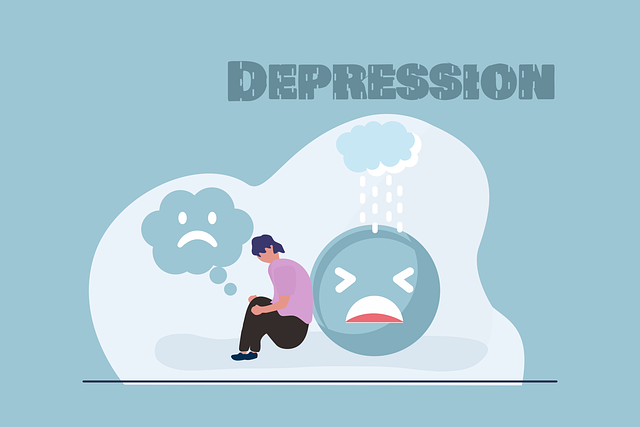For mental health professionals, especially those at Englewood Parenting Skills Therapy, understanding and managing risks is paramount. This involves identifying hazards like trauma, medication interactions, and co-morbidities through cultural competency training and mindfulness meditation. Englewood Parenting Skills Therapy employs a robust Risk Management Plan (RMP), utilizing evidence-based techniques like conflict resolution and self-care to adapt to evolving best practices and client needs. Regular reviews ensure the RMP remains relevant, fostering resilience among professionals and clients while maintaining high-quality care in a dynamic mental health landscape.
“In the sensitive realm of mental health practice, effective risk management is paramount. This article explores a structured approach to safeguarding professionals and clients alike, using Englewood Parenting Skills Therapy as a case study. We delve into understanding the unique risks inherent in this field, identifying potential hazards, and developing robust strategies. From creating a comprehensive risk management plan to implementing and monitoring safe practices, these steps ensure a resilient and protective environment for all involved, fostering the highest standards of care at Englewood Parenting Skills Therapy.”
- Understanding Risk in Mental Health Practice
- Identifying Potential Hazards at Englewood Parenting Skills Therapy
- Developing a Comprehensive Risk Management Plan
- Implementing and Monitoring Strategies for Safe Practice
Understanding Risk in Mental Health Practice

Understanding Risk in Mental Health Practice is a foundational step for any healthcare provider, particularly those specializing in Englewood Parenting Skills Therapy. Mental health professionals are often confronted with complex situations involving vulnerable individuals who may exhibit unpredictable behaviors or experience severe emotional distress. These risks can arise from various factors such as trauma history, medication interactions, and co-morbid conditions. By acknowledging these potential hazards, professionals can better prepare themselves to navigate challenging scenarios effectively.
Mindfulness meditation and healthcare provider cultural competency training have emerged as valuable tools in enhancing mental health awareness and managing risks. Mindfulness helps therapists maintain present-moment awareness during sessions, enabling them to catch subtle cues from clients that might indicate escalating issues. Cultural competency training equips professionals with the knowledge and skills to understand and respect diverse backgrounds, ensuring inclusive and effective therapy for all individuals, regardless of their cultural or social context.
Identifying Potential Hazards at Englewood Parenting Skills Therapy

At Englewood Parenting Skills Therapy, identifying potential hazards is a critical step in risk management planning. Mental health professionals often face unique challenges, from intense emotional situations to complex client dynamics. These can range from secondary traumatic stress, where therapists experience distress from helping traumatized clients, to ethical dilemmas related to confidentiality and boundary setting. Recognizing these risks is essential for maintaining a safe work environment.
Implementing empathy building strategies and focusing on emotional healing processes within the therapy setting can mitigate several hazards. Additionally, integrating burnout prevention strategies for healthcare providers, such as regular self-care practices and professional supervision, is vital. These measures ensure therapists remain equipped to handle diverse client needs while safeguarding their own mental well-being.
Developing a Comprehensive Risk Management Plan

In the dynamic field of mental health care, where every client’s journey is unique, a robust Risk Management Plan (RMP) serves as a beacon of protection and guidance for professionals like those at Englewood Parenting Skills Therapy. Developing such a plan involves a meticulous process that considers various risk factors inherent in this sector. It begins with a thorough Mental Health Policy Analysis and Advocacy, enabling therapists to identify potential hazards and triggers within their practice settings. This proactive approach ensures that the RMP is tailored to address specific challenges, aligning with Mind Over Matter Principles that foster resilience building among both professionals and clients.
By integrating these principles, Englewood Parenting Skills Therapy can create a supportive environment that mitigates risks effectively. The plan should encompass strategies for stress management, crisis intervention, and ethical decision-making, empowering therapists to navigate complex situations with confidence. Regular reviews and updates are vital to ensure the RMP remains relevant, as the mental health landscape evolves, enabling professionals to adapt and provide the highest quality care.
Implementing and Monitoring Strategies for Safe Practice

Effective risk management planning for mental health professionals involves implementing and monitoring strategies that prioritize safe practice. This includes integrating evidence-based techniques such as conflict resolution skills, self-care practices, and Mental Health Education Programs Design into daily operations. For instance, therapists at Englewood Parenting Skills Therapy have found success in adopting structured self-care protocols and regular team debriefings to mitigate professional burnout while enhancing patient outcomes.
Regular monitoring of these strategies is crucial. This can be achieved through data collection, client feedback mechanisms, and peer review processes. By continually evaluating the effectiveness of implemented practices, mental health professionals can adapt their risk management plans as needed, ensuring a dynamic approach that keeps pace with evolving best practices and client needs.
Effective risk management planning is essential for mental health professionals, especially at organizations like Englewood Parenting Skills Therapy. By understanding risks, identifying potential hazards, developing comprehensive strategies, and implementing safe practices, therapists can create a secure environment for both clients and themselves. Regular monitoring ensures continuous improvement, allowing Englewood Parenting Skills Therapy to maintain high standards of care and mitigate potential issues. This proactive approach not only protects individuals but also enhances the overall quality of mental health services provided.














